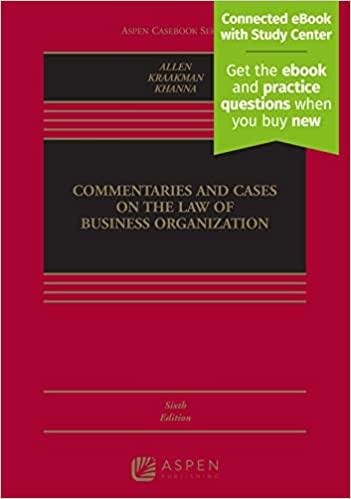Question
Richard Abel famously criticizes tort law arguing that it fails to account for the fact that in capitalist systems risks and injuries (which tort law
Richard Abel famously criticizes tort law arguing that it fails to account for the fact that in capitalist systems "risks" and "injuries" (which tort law is supposed to help manage) arenot equally distributed. For example, certain workers are more likely to be exposed to risk and injury - bodily and otherwise - that they don't "choose" or cannot mitigate. Working conditions are not established by workers, but "bosses".
Second, Abel says that the tort system's focus on "compensation" that aims to return injured parties to thestatus quoprior to the injury means that tort law necessarily treats everyoneunequally. Where wealth is distributed unequally, he says, compensation based on injury is also always unequal (e.g. some have "more to lose") and this offends law's claims of equal treatment.
First, do you agree with Abel's points? Can you think of any current examples that either demonstrate or invalidate his arguments?
Should the state completely responsibilize individuals for managing the entiretyof their own risks in our complex societies, or doesthe state (or even employers?) bear some (moral and financial) responsibility?Should the state adopt or expand "insurance schemes" (e.g. Workers Compensation) to manage unequally distributed risks and injuries today?
Step by Step Solution
There are 3 Steps involved in it
Step: 1

Get Instant Access to Expert-Tailored Solutions
See step-by-step solutions with expert insights and AI powered tools for academic success
Step: 2

Step: 3

Ace Your Homework with AI
Get the answers you need in no time with our AI-driven, step-by-step assistance
Get Started


